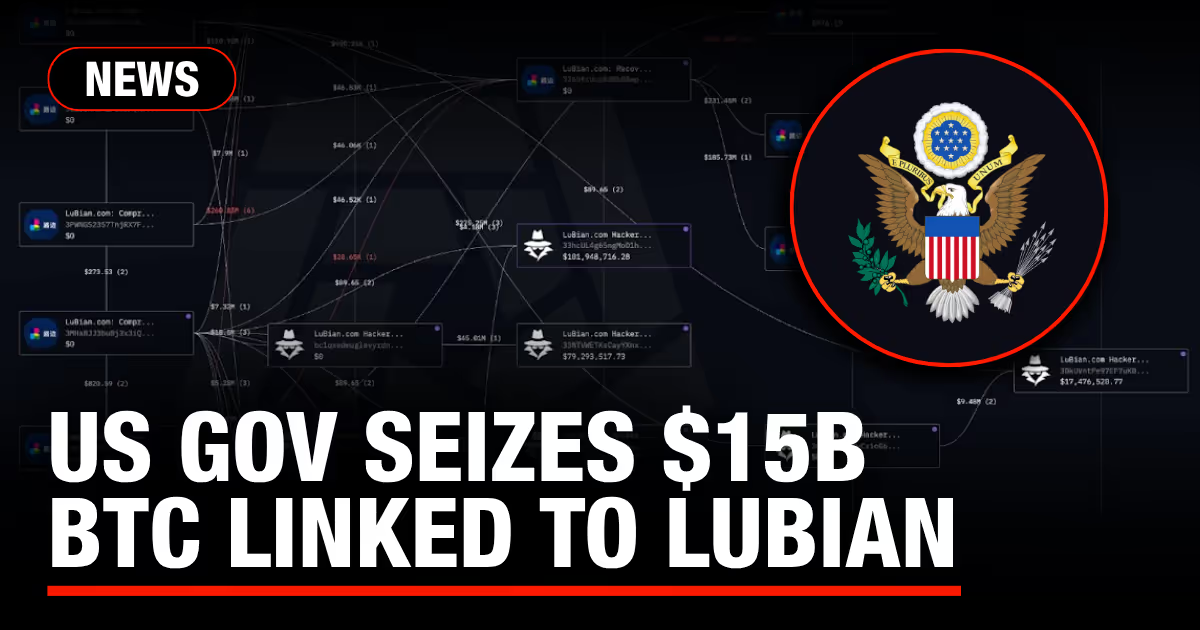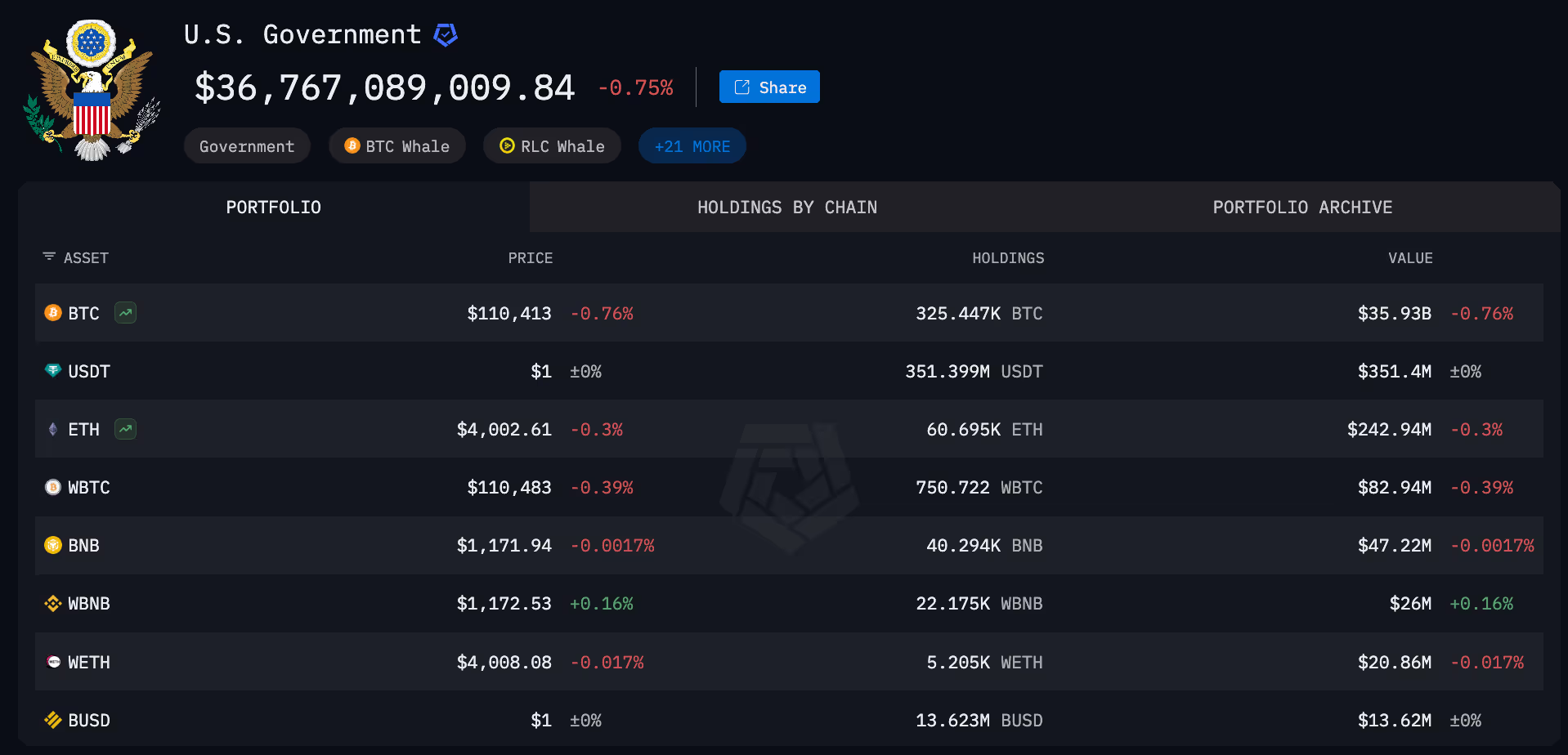October 16, 2025
at
5:20 pm
EST
MIN READ
The U.S. Government Has Seized $15 Billion BTC Linked to LuBian

The DOJ announced in a press release on Tuesday that they had gained control of 127,271 Bitcoin, valued at around $15 billion.
The Bitcoin was seized from Prince Holding Group (Prince Group), a multinational business conglomerate based in Cambodia. Prince Holding Group has been described as a scam empire led by Cambodian/British dual national Chen Zhi.
The seizure is the largest conducted by the U.S. Government ever and takes the government’s holdings to over 324,000 BTC. The US now has BTC holdings worth over $35 billion, by far the largest government holdings.

Interestingly, the seized Bitcoin are the same Bitcoin stolen from LuBian in 2020 in the biggest hack of all time. That story, broken by Arkham in August, revealed that in December 2020, the LuBian mining pool was exposed by a weakness in the algorithm it used to generate its private keys. The value of the Bitcoin at the time was $3.5 billion. Now it is worth $15 billion, making this hack the largest theft of all time.
The recent DOJ press release adds a new dimension to an already interesting and complex story. The indictment reveals that Prince Group, under the leadership of Chen, laundered proceeds from online scams through a network of legitimate businesses, including cryptocurrency mining operations. One of these was LuBian.
Court documents have revealed that LuBian operated as a money laundering front for Chen Zhi’s Prince Group. The organization funneled profits from illicit activities, such as human trafficking and forced-labor scam camps, into cryptocurrency mining to make the funds appear legitimate. The nature of the 2020 theft still suggests that the funds were stolen by a third party. Indeed, on-chain data shows Chen Zhi still holds approximately $1.5 billion in BTC in other wallets currently sanctioned by the U.S. government.

This is an ongoing and complex story and many questions remain unanswered. The exact method by which the BTC came into U.S. custody is still unclear, as is the identity of the individual or group who executed the initial "theft" from LuBian's wallets. Discovering this information will go a long way in revealing what actually happened.
This case highlights the increasing sophistication of both financial crime and law enforcement in the digital age. It also underscores the vital role of blockchain analysis in uncovering and tracing illicit transactions, as demonstrated by Arkham's initial discovery of the LuBian theft. As the legal proceedings against Chen Zhi unfold, more details about this intricate web of deception are likely to emerge.













































































































































































































































































































.png)